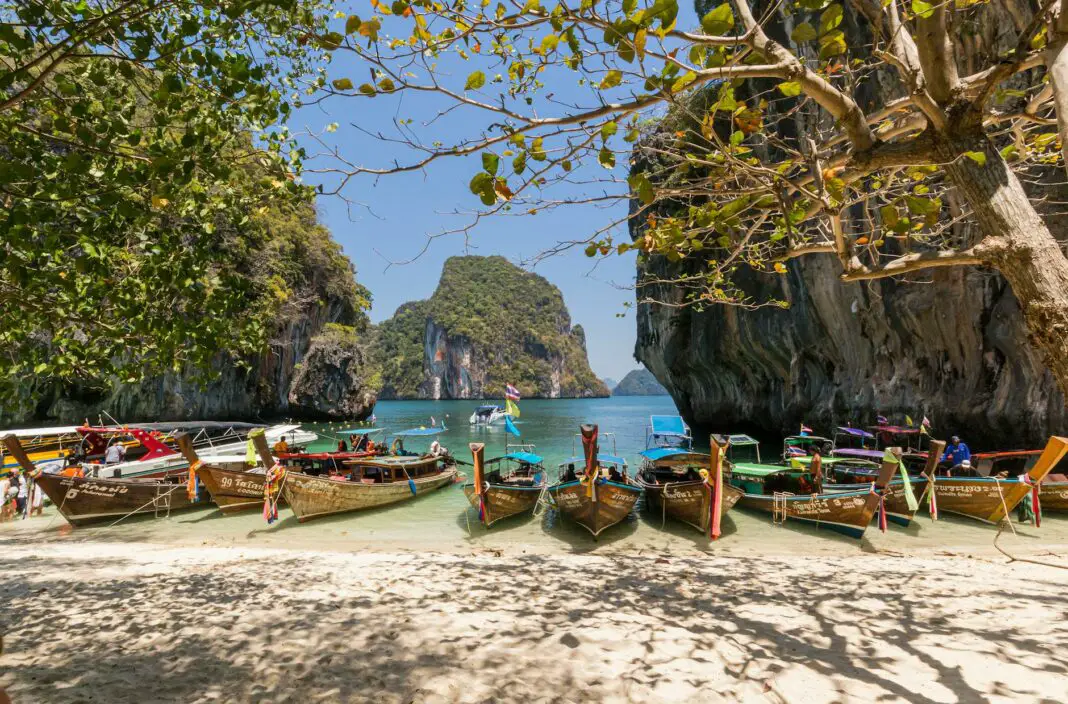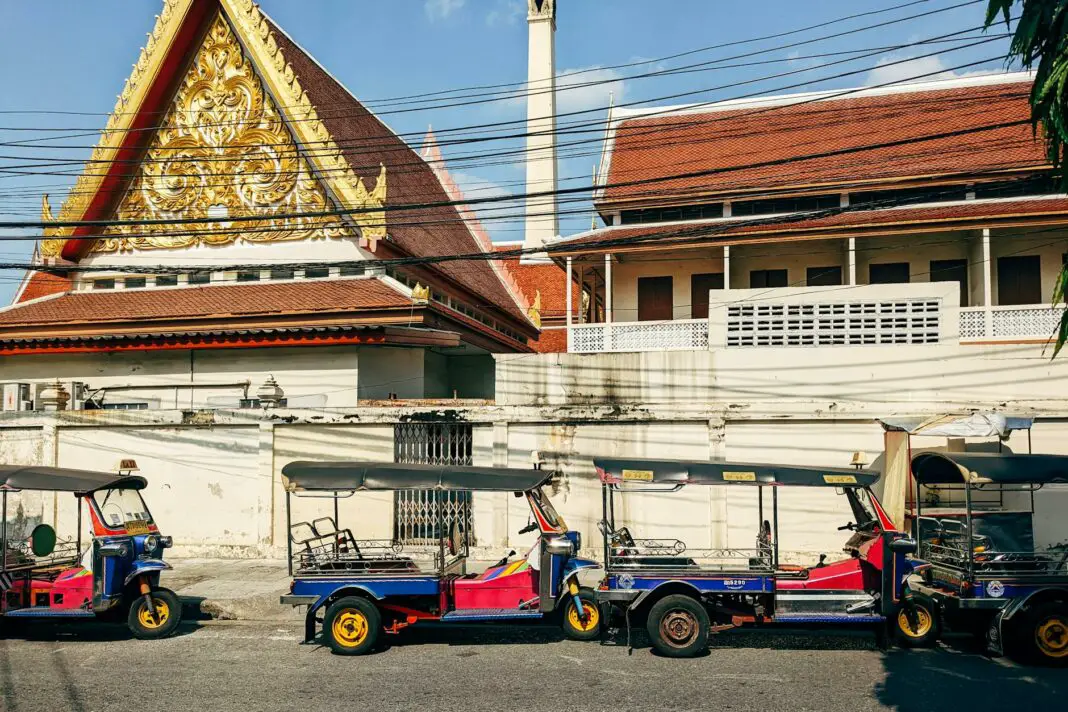Thailand’s allure extends far beyond its famous beaches and bustling cities. Known for its rich cultural heritage, stunning landscapes, and delightful flavors, the country is increasingly recognized for its hidden eco-tourism gems. This post dives into the heart of Thailand’s eco-tourism, asking the pressing question: Is Thailand’s hidden eco-tourism paradise worth the hype? Through captivating narratives and actionable insights, discover how Thailand’s sustainable experiences promise an unforgettable adventure and a chance to make a positive impact on the planet.
This journey also emphasizes exploring serene jungles, sustainable practices, and local interactions that redefine the travel experience. Whether you are a seasoned traveler or a first-time explorer, this comprehensive guide will provide the essential information you need to understand Thailand’s eco-tourism offerings, along with tips, real-life examples, and a thorough exploration of what to expect. As we venture through this vibrant terrain, let’s uncover the hidden gems that await in Thailand.
Table of Contents
- Why Choose Eco-Tourism in Thailand
- Unveiling the Hidden Paradises
- The Impact of Eco-Tourism on Local Communities
- Tips for an Eco-Friendly Trip to Thailand
- Embracing the Thai Eco-Culture
- Final Thoughts on the Journey
- Frequently Asked Questions
Why Choose Eco-Tourism in Thailand
Transitioning from mass tourism to eco-tourism has become vital for preserving Thailand’s remarkable biodiversity and culturally rich environments. Opting for eco-friendly travel means prioritizing sustainability, protecting wildlife habitats, and supporting local economies. Visitors will find that eco-tourism allows them to experience a deeper connection to nature while being mindful of their ecological footprint. With the natural beauty of Thailand, from its lush jungles to pristine beaches, it’s no wonder eco-tourism is gaining momentum. Moreover, travelers can relish the opportunity to engage with Thai culture in an enriching and authentic way while ensuring that their travels contribute positively to the environment and the communities they visit.
By fostering responsible travel practices, eco-tourism creates a platform where visitors can appreciate Thailand’s unique ecosystems. For example, nature reserves and eco-lodges offer guided tours led by local experts who share intimate knowledge about the flora and fauna, enriching the travel experience. Furthermore, eco-tourism initiatives often emphasize the importance of conservation, inspiring travelers to become custodians of nature. This symbiotic relationship not only enhances personal travel experiences but also ensures that future generations can enjoy Thailand’s breathtaking landscapes.
Unveiling the Hidden Paradises
Exploring Thailand’s hidden eco-tourism spots offers an escape from the crowded tourist trail, revealing the country’s idiosyncratic beauty. Nestled within the mountainside, the lush forests of Pai in Northern Thailand captivate adventurers with stunning panoramas and thriving wildlife. The serene riverbanks and rice paddies invite tourists to immerse themselves fully in the surrounding nature, creating a perfect retreat for relaxation and rejuvenation. Pai, often dubbed as a backpacker’s haven, bursts with vibrancy and life, housing eco-friendly accommodations and shared spaces that encourage communal living and sustainable practices.
<p<Additionally, the breathtaking islands of Koh Yao Noi and Koh Yao Yai boast eco-lodges that offer various water sports, organic farming experiences, and authentic culinary classes. Visitors can engage with local fishermen and learn traditional fishing techniques, deepening their comprehension of the islands' cultural heritage while partaking in sustainable fishing practices. Furthermore, by choosing to stay in these eco-friendly accommodations, travelers directly support local efforts to preserve their natural resources.
The Impact of Eco-Tourism on Local Communities
The ripple effect of eco-tourism on local communities cannot be overlooked. Engaging with local populations promotes cultural exchange, generates sustainable incomes, and encourages conservation practices. This kind of tourism empowers communities, enabling them to share their stories and traditions while fostering pride in their environment. For instance, numerous initiatives allow travelers to participate in hands-on conservation activities, such as reforestation projects, turtle nesting programs, and wildlife monitoring.
Through these interactions, tourists gain insights into the community’s challenges and triumphs in preserving their ecological landscapes. Furthermore, eco-tourism enhances local economies by encouraging the development of organic farms, markets, and crafts, providing alternative income sources for families. As travelers experience this interaction, they contribute to a lasting legacy where both visitors and residents enhance each other’s lives through shared experiences and objectives rooted in sustainability.
Tips for an Eco-Friendly Trip to Thailand
When planning a journey to Thailand with an eco-conscious mindset, preparation is key. First and foremost, choose environmentally friendly accommodations that prioritize sustainability. Look for lodges that utilize solar energy, practice waste reduction, and support local conservation efforts. Many eco-lodges and hotels in rural areas promote sustainable tourism practices, offering unique experiences that allow visitors to bond with nature.
Secondly, embark on wildlife tours led by local experts to learn about the intricacies of Thailand’s ecosystems. Engaging with knowledgeable guides not only enriches understanding but also ensures that wildlife experiences conform to ethical standards. Additionally, travelers should consider incorporating slow travel methods, such as cycling, hiking, or using public transportation, which significantly reduce carbon footprints while providing an authentic immersion into Thai culture. Finally, remember to travel with reusable items, such as water bottles and shopping bags, to minimize plastic waste throughout your adventure.
Embracing the Thai Eco-Culture
To fully appreciate Thailand’s eco-tourism offerings, embracing the local culture is essential. Participating in community events, workshops, and traditional celebrations allows travelers to tap into the soul of Thailand. Engaging with local artisans and learning traditional crafts by participating in hands-on workshops reinforces the value of cultural preservation. Whether it’s pottery, weaving, or cooking classes, these experiences provide a unique perspective and foster genuine connections with the local populace.
Moreover, indulging in cuisine that highlights organic and locally sourced ingredients not only tantalizes the taste buds but also promotes health-conscious eating. Exploring local markets and dining at farm-to-table restaurants enhances the travel experience by connecting food to its origin. Visitors can relish authentic Thai dishes while simultaneously supporting practices that promote sustainability and ecological awareness. By wholeheartedly embracing the eco-culture, travelers cultivate meaningful relationships and foster a deeper understanding of the vital connection between culture and environment.
Final Thoughts on the Journey
Traveling to Thailand’s hidden eco-tourism treasures positions visitors at the forefront of a transformative movement. By thoughtfully engaging with the local environment and communities, travelers experience unparalleled adventures while leaving a positive impact. Whether wandering through the breathtaking landscapes of Pai, exploring the pristine beaches of Koh Yao, or participating in local conservation efforts, every moment cultivates an appreciation for the rich tapestry of nature and culture. Ultimately, the journey awakens an enduring ecological consciousness, inviting travelers to rethink their relationship with the world around them.
Frequently Asked Questions
- What are some of the best eco-tourism destinations in Thailand?
Top eco-tourism spots include Pai, Koh Yao Noi, Chiang Mai, and Khao Sok National Park, each offering unique experiences tied to nature and sustainability.
- Is eco-tourism expensive in Thailand?
While some eco-tourism accommodations may be pricier, many are affordable and provide immense value through unique experiences and sustainable practices.
- What can I do to ensure my travel is environmentally friendly?
Opt for eco-friendly lodgings, minimize plastic use, participate in local conservation initiatives, and support local businesses during your travels.
- How can I experience Thailand’s culture while practicing eco-tourism?
Engage with local artisans, leave the tourist trail to meet community members, and partake in workshops that honor traditional crafts and customs.
Image Credit: Pexels





